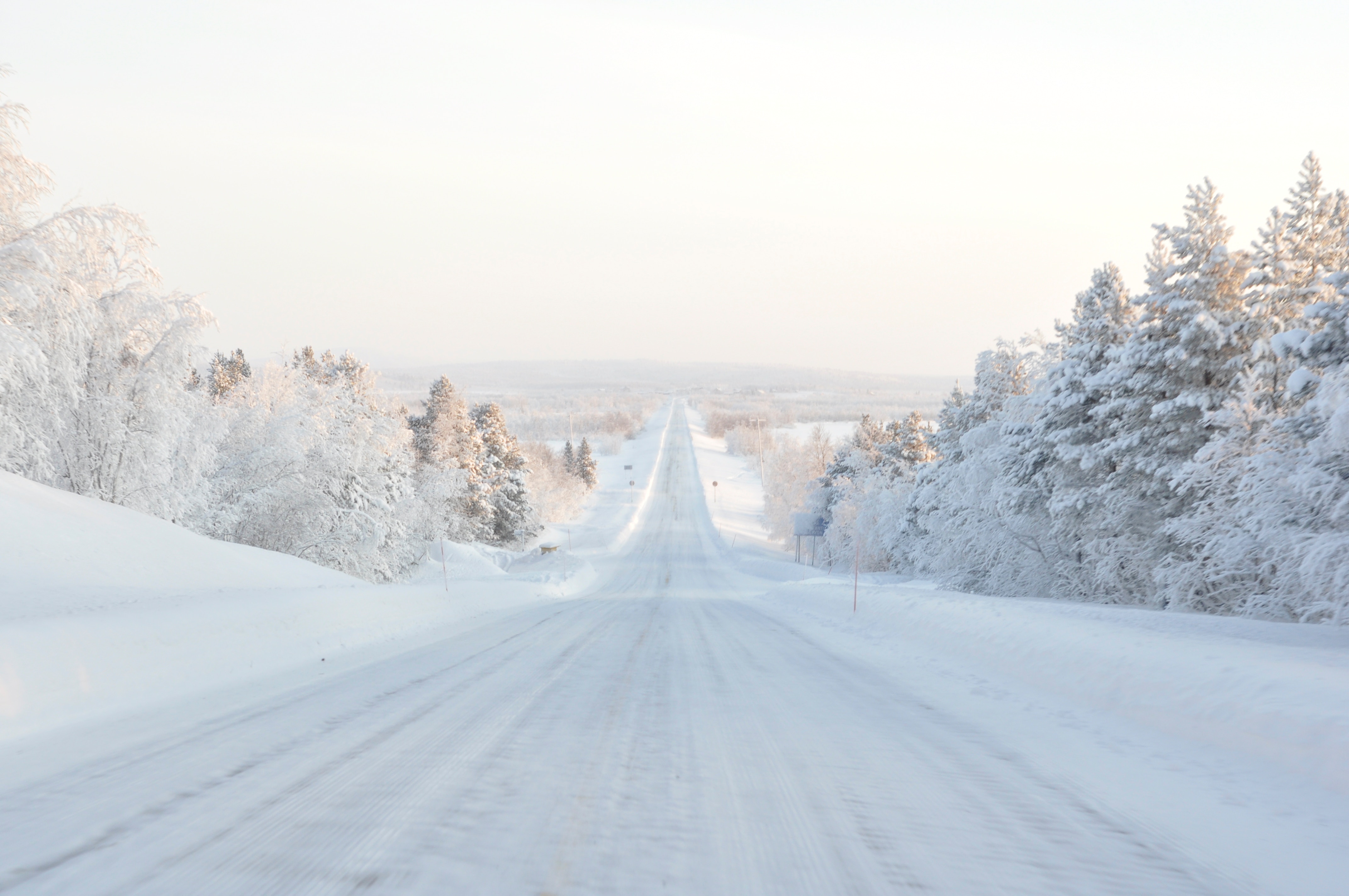It can be challenge enough to maneuver and manage a standard vehicle on wintry roadways, but driving a long RV or having one in tow poses additional challenges.
To keep our RVs, our vehicles, and ourselves safe during the winter months, take these winter driving tips into consideration.
- Have snow chains. These can make all the difference in the world. If you’re stuck unexpectedly in a snow storm or plan to drive a distance on snow-covered roads, snow chains will help give you the extra traction you need. Always have them handy and simply pull off at a gas station or truck stop if you need to put them on. Some places may offer this service for a fee. If you need to this alongside a road or highway, pull off slowly, place warning cones around the RV as well as at least 10 feet behind it to warn oncoming traffic.
- Be full. Full of gas, that is. During the winter, you need to be prepared to have enough gas in case you get stuck somewhere overnight in order to keep your RV and yourself from freezing, or you’re stuck for hours on the highway in a traffic jam. Bring along an extra tank of gas in case of an emergency. The same goes for propane; however, have other methods of staying warm, such as electric blankets and extra insulation to avoid from using all of the propane too quickly.
- Take it slow. Accelerate, brake, and steer slowly and steadily to minimize skidding. Take corners slowly. This is especially important if you’re towing a trailer or camper as too much skidding can cause whatever you’re towing to start swinging forward and jackknife.
- Drive intelligently. Leave a substantial amount of room between you and the vehicle in front of you. You have a lot of extra weight, which means more momentum to slow down if you need to come to stop. Leaving room gives you more time to brake and slow down and calmly make a decision.
- Just wait it out. If the weather is too hazardous, wait it out. Get comfortable and readjust your plans. That’s part of the beauty of owning an RV in the first place, and your life and the life of your RV are more important than sticking to a timetable.

